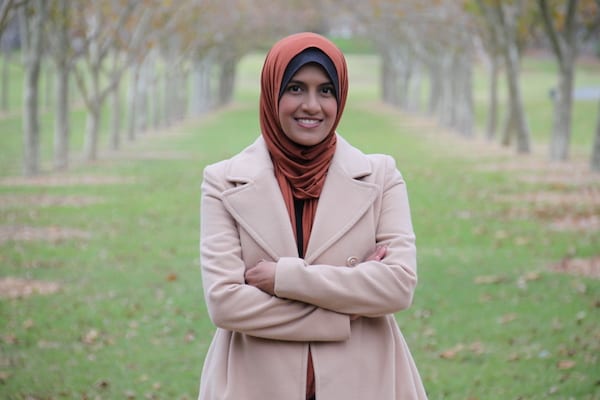When Health Minister Greg Hunt apologised to women with endometriosis on behalf of Parliament recently, and committed to developing the first National Action Plan for endometriosis, it was a monumental step for womankind.
Greg Hunt’s announcement, made in partnership with MPs Nola Marino, Gai Brodtmann and Nicolle Flint, will also see research funding applied, as well as endometriosis awareness during Health Week 2018. They made the announcement after women across Australia gathered in Canberra to share their stories, along with a number of endometriosis advocacy groups.
For too long, women and girls have been invalidated, suffering alone and in silence, and that ends now.
As a woman with endometriosis, this news is personal to me and I feel women are finally being listened to. The average delay in diagnosis is 7 to 10 years, which is both ridiculous and alarming. My own diagnosis came after eleven years, and by then I was in agonising pelvic pain on a daily basis.
I remember vividly in my early teens, waking up in the middle of the night in such severe pain that I crawled my way out of my room and down the stairs, crying in agony, until I reached my parents bedroom. We rushed to the hospital, and I honestly felt like my uterus was going to explode. The hospital pumped me full of morphine, and sent me home the next day, with no mention of the possibility of endometriosis.
My severe period pain, menstrual migraines and bowel problems, which are all common symptoms of endometriosis, were never taken seriously despite seeing dozens of doctors. If only someone had taken a closer look in my teens, or if menstrual health education in schools included information about endometriosis, I could have prevented a lifetime of pelvic pain and other autoimmune issues.
Research into diagnosis and treatment of endometriosis has been severely lacking, especially since it affects 1 in 10 women and girls worldwide. For a condition that affects as many women as diabetes with similar costs to the economy, it receives only 5% of comparable funding. That’s $10 of funding per woman with endometriosis, compared to $200 per woman with diabetes.

Endometriosis occurs when cells similar to those that make up the lining of the uterus exist in other places as well, such as on the ovaries, the fallopian tubes, the bowels, and even the lungs and diaphragm. When a woman has a period, these cells bleed too, but there’s nowhere for them to leave the body so they build up causing inflammation, scarring, adhesions, pain and infertility.
Advocates have formed a peak body which includes researchers, clinicians, patients and awareness groups EndoActive, Endometriosis Australia, Pelvic Pain Foundation of Australia and QENDO, lobbying for endometriosis to be tenth National Health Priority. It’s about time we stop saying “period pain is normal”, and start implementing accurate menstrual health education in schools and workplaces.
The Jean Hailes Foundation has also committed to raising awareness by making endometriosis a feature of Women’s Health Week. My company, The Pelvic Expert, will be taking part throughout September 2018 to bring awareness to women’s health issues including endometriosis, and I urge everyone to do the same in their workplaces. Together, we can change the world for women and make pelvic health common conversation.

